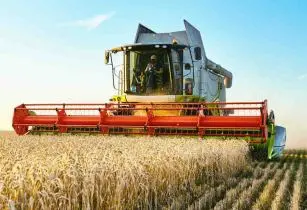Ethiopia has received a US$84.3mn grant funding from the African Development Bank Group (AfDB) to advance wheat production and increase farmers incomes
Ethiopia’s Finance Minister, Ahmed Shide along with AfDB's deputy director general for East Africa, Abdul Kamara on 2 August, signed the grant agreement for the implementation of the country’s Climate Resilient Wheat Value Chain Development Project (CREW). This project was designed to scale up and sustain the successful results of the AfDB's flagship Technologies for African Agricultural Transformation (TAAT) initiative through which the AfDB has supported Ethiopia and several other countries across the continent to boost productivity in agriculture.
The grant comprises US$54mn from the African Development Fund, US$20mn from the Government of the Netherlands, US$10mn from agribusiness firm OCP Africa, and US$300,000 from the Global Center on Adaptation. In addition, the Ethiopian government will contribute US$10mn in counterpart funding for the project, which has three main components namely, climate smart wheat productivity and production; market infrastructure, linkages, and agri-finance; and project coordination and management.
"The CREW Project will ensure that farmers in Ethiopia can access agricultural inputs to raise local production of wheat such that supply disruptions resulting from the Russia-Ukraine crisis do not worsen the food security situation already made precarious by Covid-19, climate change and rising cost of living. It also seeks to sustain Ethiopia’s exemplary strides in attaining wheat self-sufficiency and export orientation, a model that other African countries should emulate,” said Kamara during the signing. He further highlighted that the grant not only demonstrated the Bank's unwavering commitment to supporting Ethiopia and its people, but also reaffirmed the partnership between the Bank and the government towards achieving Ethiopia's vision of becoming a lower middle-income country by 2025.





